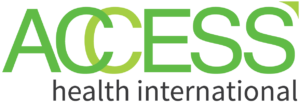
| Raman anxiously awaits his mother’s test results at one of the leading private hospitals in Bangalore, India. Working as a clerk for a small commercial business, Raman earns $476 USD per month. While supporting a family of four – his wife, child, and widowed mother – Raman barely makes ends meet each month. He has already spent $544 out-of-pocket for preliminary diagnostics to determine his mother’s cancer status. He is told the rest of her tests will cost between $270 and $350. The treatment, which includes surgery to remove a tumor found in her right breast, will cost around $4,762. Raman has basic insurance coverage from his employer for himself, his wife, and his child but his mother remains uncovered. The treatment in a public hospital would be less expensive, however public hospitals are overcrowded with a waitlist of 6-8 weeks for cancer surgery. In addition to this, government hospitals often lack the specialized infrastructure required for cancer diagnosis and treatment, leaving patients to turn to private diagnostic facilities which operate on market prices. The social insurance scheme launched in 2018, Pradhan Mantri Jan Arogya Yojana (PM-JAY), covers the poorest section of society however, Raman and his family do not meet the eligibility criteria.
Raman feels helpless. Without the right financing solution, he feels he will lose his mother to cancer. This is the story of many in India. Breast cancer is the most common cancer in India. Every 4 minutes one woman is diagnosed with breast cancer and every 13 minutes, one woman dies of breast cancer. A typical cancer patient spends over $500 USD in a public hospital on medical treatment alone, half the average annual income of $1,029 per person. In a private hospital, the out-of-pocket spending for inpatient care is about four times that of public hospitals. Additionally, treatment for about 40% of cancer hospitalization cases is financed mainly through loans, the sale of assets, and contributions from friends and family. In essence, having a cancer patient in your family in India can mean a lifetime of the physical, emotional, and financial burden for the whole family. Raman not only faces a financial challenge but also the difficulty of navigating the complex healthcare system. Fighting against time, he struggles to find high-quality care for his mother that is also affordable. Tired and frustrated, Raman searches the internet for support options for cancer patients and finds DCode Care. DCode Care is a discovery platform for critical illness patients looking for the right treatment at the best price. More specifically, it assists cancer patients in finding suitable doctors and hospitals and helps them negotiate price points for the latest treatments. Raman leaves a message on the DCode platform and soon receives a return call from the team. They connect Raman to an oncologist working at a 60-bed private hospital with rates substantially lower than the health system where Raman’s mother was previously being cared for. The cache of hospitals onboarded by DCode includes smaller, private hospitals with qualified oncologists, where they outsource most of their diagnostics, keeping in-house prices for surgery and clinical treatments low. The final test Ramen’s mother needs cost less than $81 through this facility which is more than half the cost at the previous hospital. However, Raman’s mother still requires expensive surgery to the tune of about $3,000. The Dcode Care team intervenes at the request of Raman and helps him negotiate the surgery cost down to $2,450. After spending on the diagnostics, Raman still needs $1,088 for the surgery. Believed he is left with no other choice, Raman decides to sell his mother and wife’s gold jewelry. Prior to partnering with Fintech for Health, the DCode Care team could do little to support Raman at this juncture. But now they collaborate with Arogya Finance agents. Arogya Finance is a non-banking financial institution providing loans to meet the healthcare needs of the lower-income population. Arogya Finance and DCode Care together provide assistance in navigating the healthcare system, negotiating medical bills, and accessing financing for healthcare services. DCode Care introduces Raman to an Arogya Finance team member. Arogya Finance’s supportive network of partners works together to back loans for the patient or their families. Through the use of alternative credit scoring tools, Ramen is deemed eligible for a 0% interest loan for the remaining amount needed for his mother’s tests, her surgery, and all postoperative and rehabilitation out-of-pocket expenses. Raman’s mother was treated successfully and is now recovering well. The success of Raman’s medical and financial journey through the healthcare system was made possible by Fintech for Health, a project run by ACCESS Health International and Metlife Foundation which aims to create partnerships that broker accessible, affordable healthcare financing options for low- and moderate-income populations in Asia. Under Fintech for Health, we aim to guide partners to collaborate in this way and support many other Ramans in their healthcare journeys. Contact us at [email protected] to partner with us in this journey. Author: Monica Mittal, Innovation Lead, ACCESS Health International Southeast Asia |


